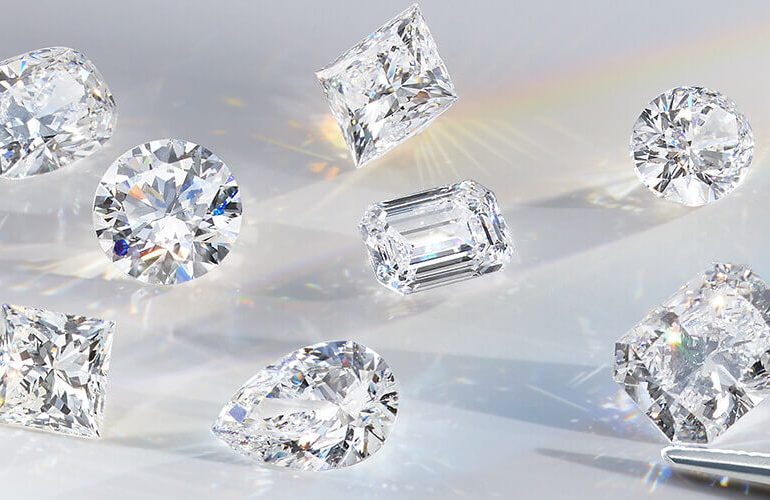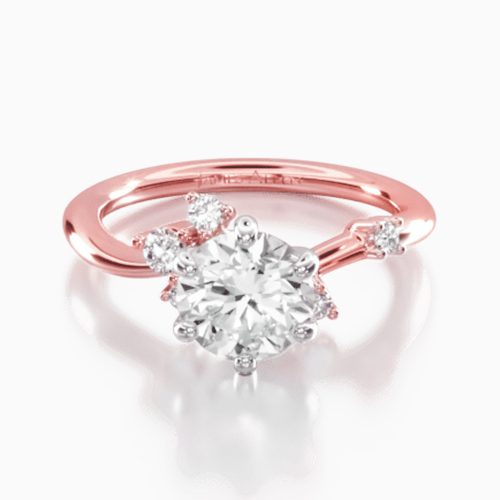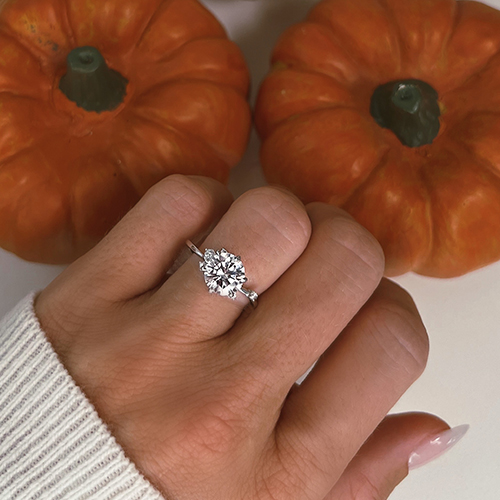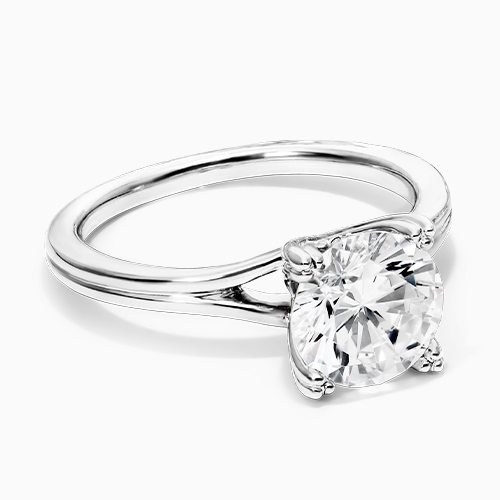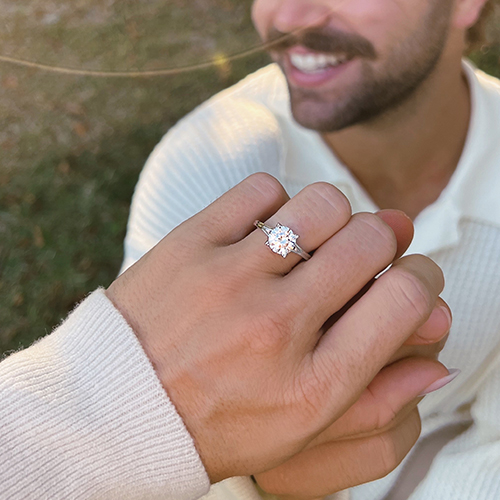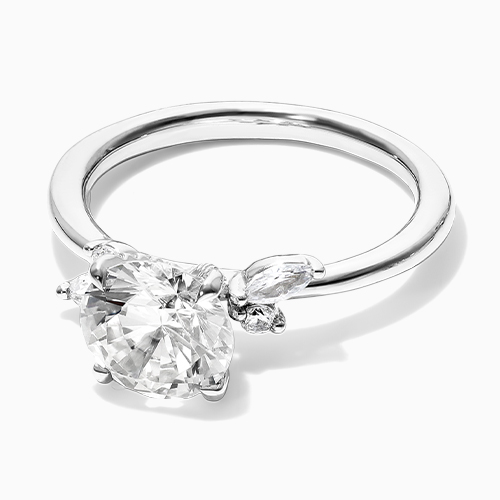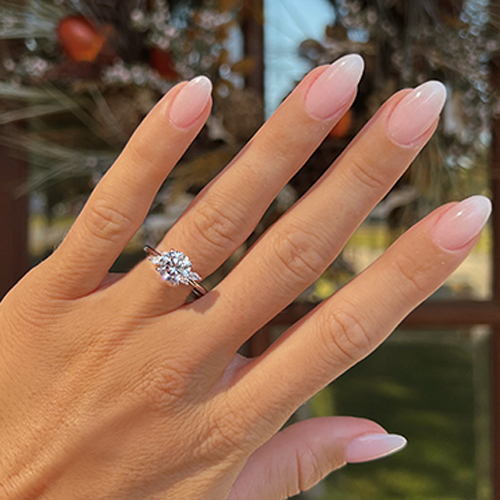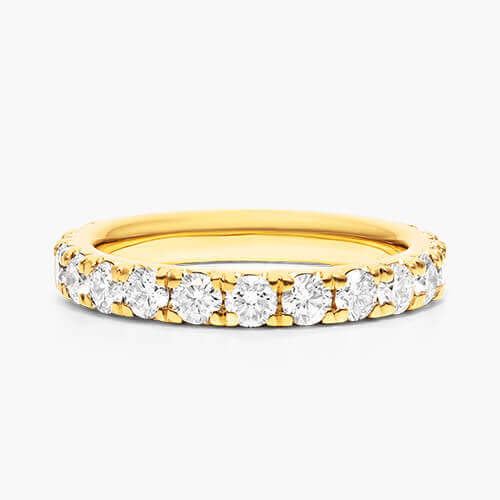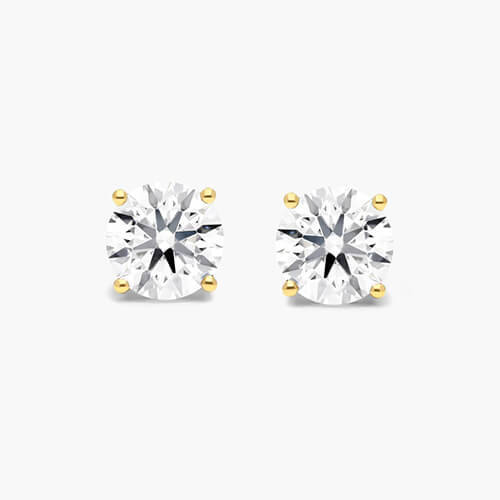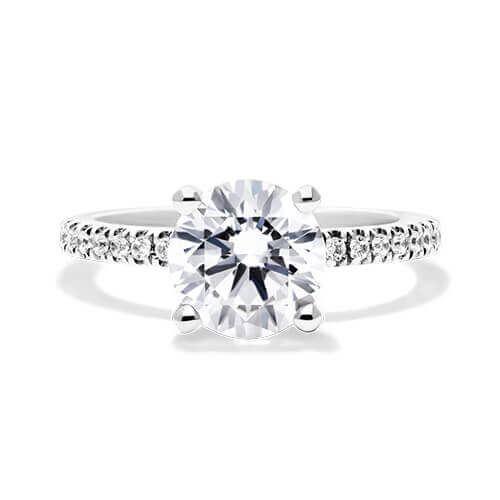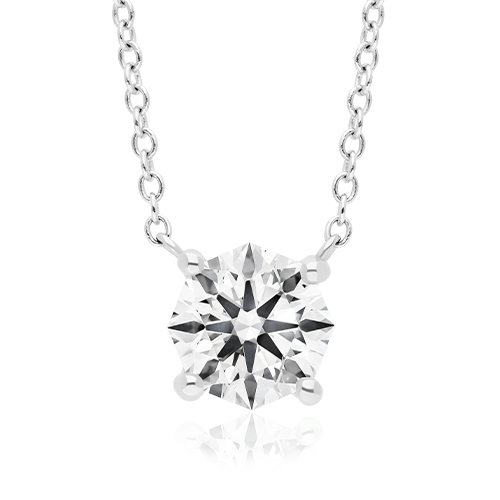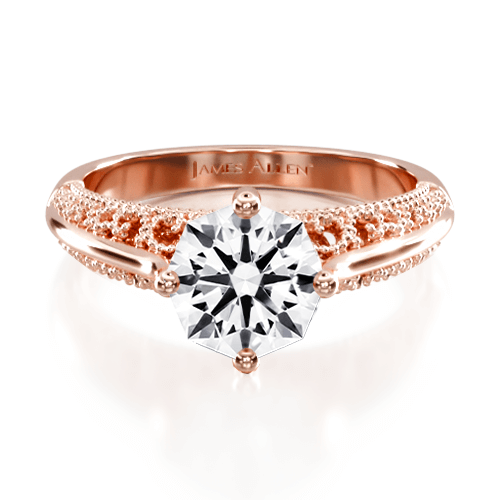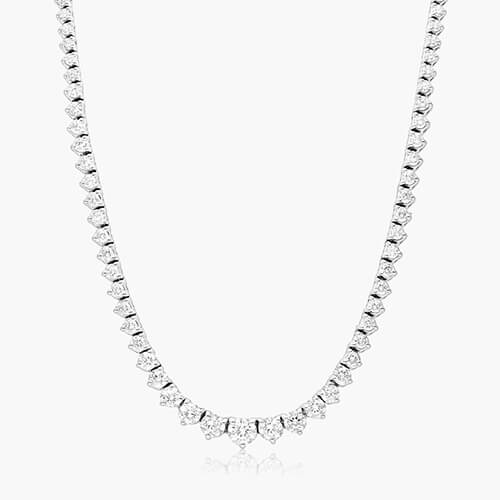Lab grown diamond or natural diamond? We’ve got all the info you need to live your best sparkling life with the perfect diamond for you!
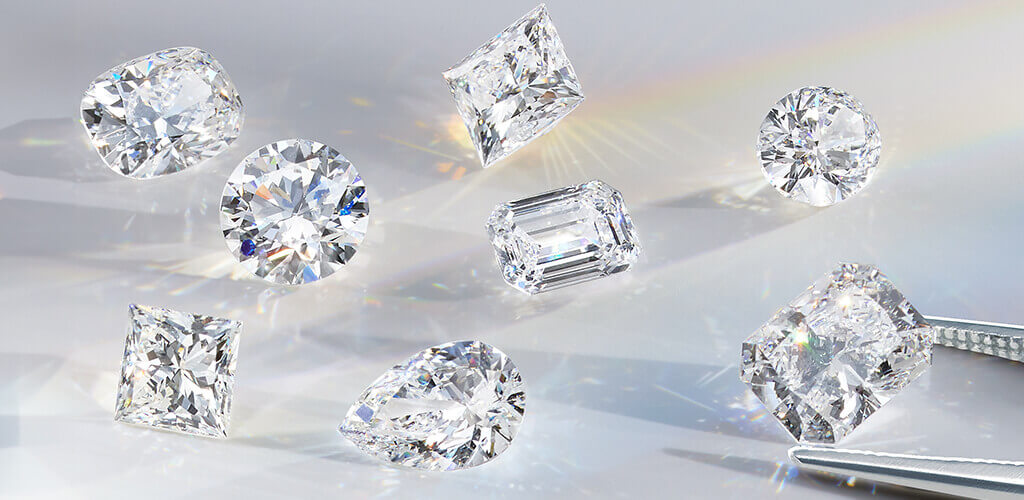
Lab grown diamonds have become increasingly popular and are pretty much the new kids on the jewelry block. Like many new unknowns, people are a little skeptical at first when they hear about lab diamonds, but rest assured, they make for a perfect alternative to natural diamonds. Let’s start with some basic facts so you can decide with 100% confidence which sort of sparkle sets a twinkle in your eye.
Table of Contents
What Is A Diamond?
Diamonds are carbon atoms. When they’re arranged in a very particular structure, you get the tough and beautiful stone we know and love. Producing this special carbon arrangement in nature demands conditions that are intense. We’re talking high heat and super-high pressure. Needless to say, very few places in the world are capable of producing mined diamonds.
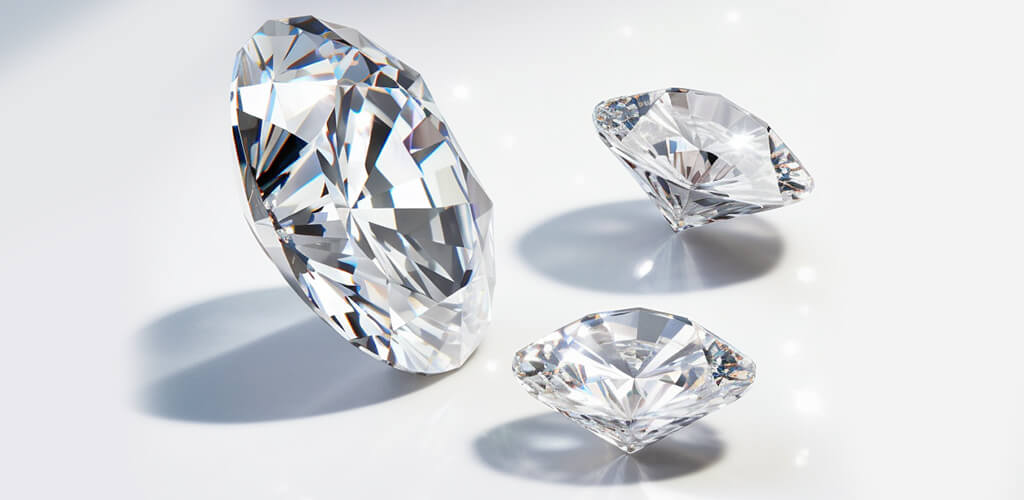
The Key Difference Between Natural and Lab Grown Diamonds
- Natural diamonds are sourced from below the earth’s surface, whereas man-made diamonds are created in simulated “below-ground” conditions in a lab.
- To put it simply, their origin is the only difference between these two types of diamonds.
- Technology has advanced to the point that we don’t always have to go digging for our precious stones; we can simulate the necessary extreme conditions in specialized pressure chambers in a lab.
- Lab grown diamonds are grown from tiny carbon “seeds” that develop in these chambers over months, as scorching gasses deposit carbon atom-by-atom onto the original seed. Lab created diamonds even develop their own unique characteristics (inclusions, clarity, etc.) along the way, and once they’re fully grown, they’re cut into the shape that suits their qualities best.
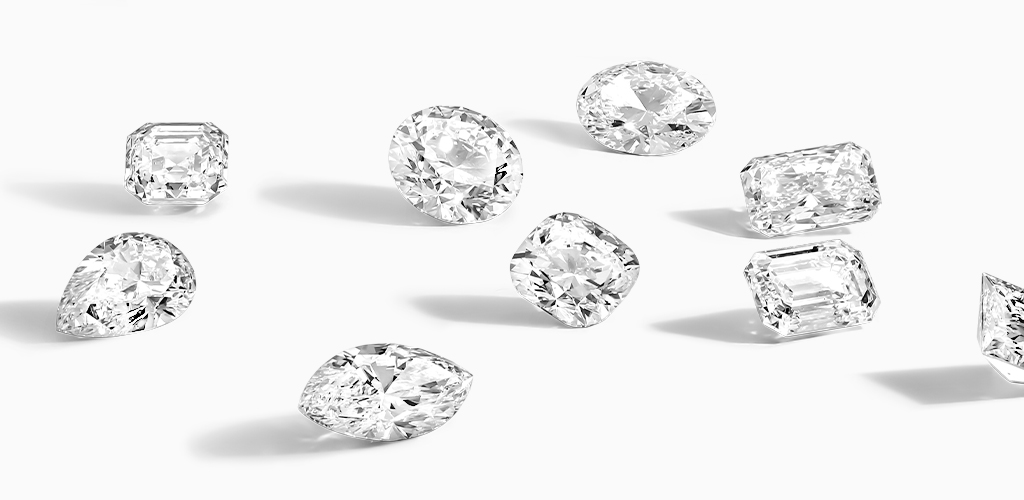
Factors To Consider When Choosing Your Diamond
Picking a diamond isn’t easy, there’s your budget to consider, your partner’s preference for cut, clarity, carat, and color, and its rarity factor.
Cost
One of the biggest upsides to lab grown diamonds is that they’re generally about 30% more affordable than natural diamonds.
Why?
The diamond-growing process is less resource-intensive than the diamond-mining process. It simply costs less to grow a diamond in a lab than it does to mine a diamond from the earth, and those savings are passed along to diamond shoppers. That means that for the same cost, you can purchase a lab grown diamond that’s 30% larger than a natural one but just as dazzling.
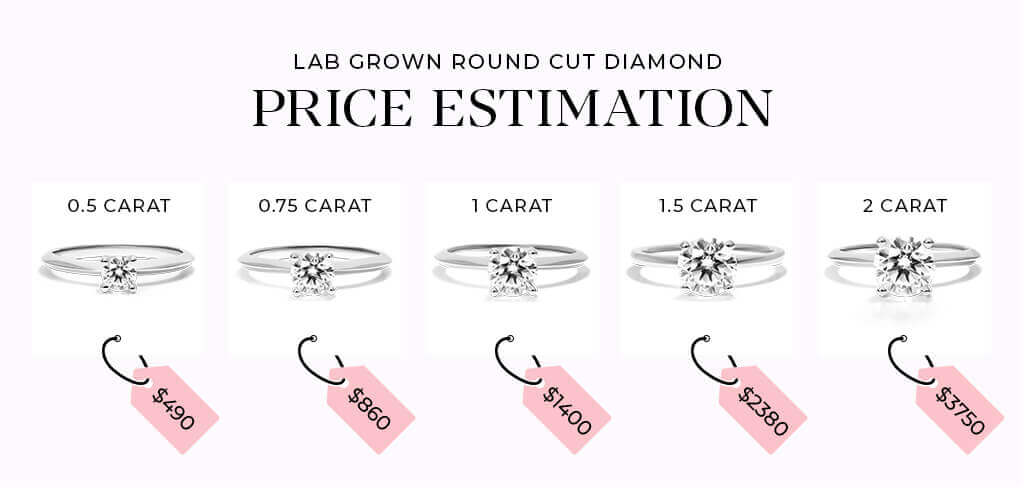
Value
Natural diamonds are the classic choice. Lab grown ones are the fresh choice.
There is no doubt that mined diamonds contain millennia of history, tradition, and romance. They are one of nature’s most incredible products. Drawn from deep within the earth, these sparkling treasures have been proudly flaunted by generations, paving the way for you to carry on the tradition.
Do Lab Grown Diamonds Have Resale Value?
Lab grown diamonds generally have lower resale value compared to mined diamonds. Natural diamonds can retain or even appreciate in value over time, while lab diamonds may not hold their value as well in the secondary market due to their lower production cost.
Cuts & Colors
Both natural and lab grown diamonds are available in nearly every shape and color – even fancy colors!
Colorful diamonds, like canary yellow ones, are quite rare. Their shocking hues are caused by trace amounts of non-carbon elements, like nitrogen. By adding these elements to a growing diamond in its pressure chamber, man-made diamonds take on the same fancy colors as mined diamonds.
Good news: any diamond can be cut into any shape. When it comes to diamond cuts, you truly are spoiled for choice!
GIA Certified Lab Created Diamonds
Like all diamonds, lab grown diamonds also come with their very own birth certificate (GIA Certification).
Since lab diamonds are optically and chemically the same as mined diamonds, they come with their own certification. Today, most of these diamonds are certified by IGI, International Gemological Institute.
Additionally, these diamonds are being accepted and certified by the GIA, the Gemological Institute of America, which has developed sophisticated devices that are used to screen and identify the difference between natural diamonds and lab-grown ones.
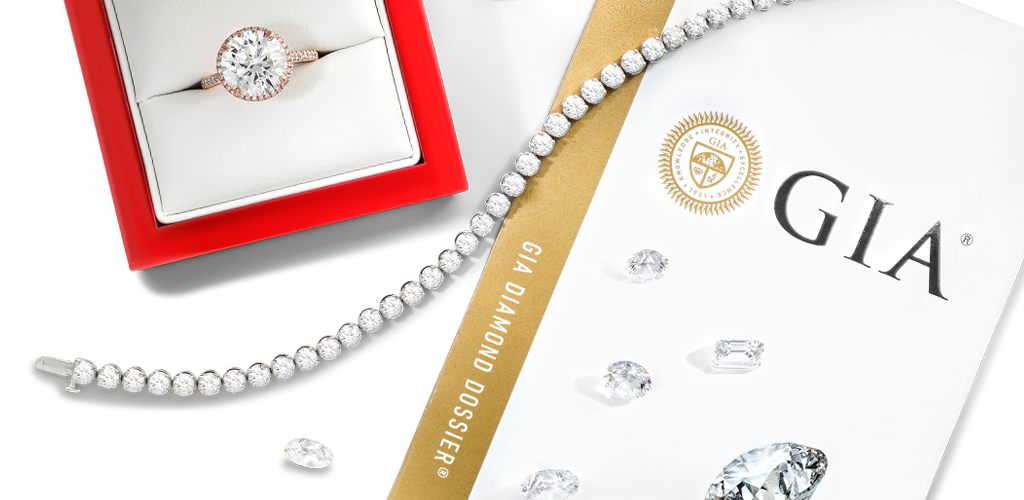
Should You Get a Lab Grown Diamond Engagement Ring?
The short answer is, why not? Here are 5 reasons to choose a lab grown diamond engagement ring:
1: Budget-Friendly
You’re able to maximize your budget and walk away with a bigger center stone for your engagement ring if you choose a lab diamond. Furthermore, it might not even be about the size of the ring, but more about being able to get the diamond of your dreams for a third of the price.
2: An Ethical Choice
Lab grown diamonds are an ethical choice because they are guaranteed to come conflict-free since they’re not mined.
3: Stress-Free Shopping Experience
Most online jewelry retailers with customization options, like our very own ring studio, allow you to choose your preferred center stone. That means you’re able to inspect your diamond options (often in real-time), and browse at your own pace.
4: Lab grown diamonds are REAL
This can’t be emphasized enough, both lab diamonds and mined diamonds have the same chemical, optical, and physical properties. A lab created diamond is not a diamond alternative like moissanite, it’s the real deal.
5: Unique
Lab grown diamonds are unique in their own right. Not only can they be cut and shaped to your heart’s desire, but they can be cut to absolute perfection. Our True Heart™ diamonds are a premier collection of perfectly cut diamonds, known for their flawless internal symmetry and proportions.
FAQs
Are lab diamonds as durable as natural diamonds?
Yes, lab diamonds have the same level of durability as natural diamonds. Both types of diamonds rank 10 on the Mohs scale of hardness, making them highly resistant to scratching and suitable for everyday wear.
Can you tell the difference between lab grown and natural diamonds with the naked eye?
No, it’s impossible to differentiate between the two types of diamonds with the naked eye. They share the same physical and optical characteristics, making visual identification nearly impossible without specialized equipment.
Are lab grown diamonds available in various sizes and shapes?
Yes, these diamonds come in a wide range of sizes and shapes, just like natural diamonds. Whether you’re looking for a classic round brilliant cut or a unique fancy shape, you can find lab diamonds to suit your preferences.
Do lab grown diamonds require any special care or maintenance?
Lab diamonds, like natural diamonds, do not require special care. You can clean them using mild, soapy water and a soft brush or cloth. Regular maintenance, such as checking the setting, is recommended to ensure the diamond stays secure in its setting.
To Sum It Up
Choosing the stone that suits your lifestyle is an important part of designing meaningful jewelry that will last you throughout your life. And if you choose to buy either lab grown diamonds or natural diamonds, you can choose from 500,000 beautiful options at James Allen.

